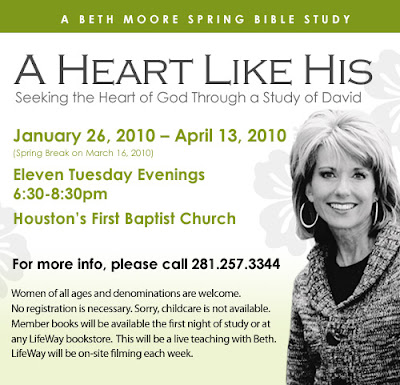It has been FOREVER.
I’ve missed you.
So, what have you been up to?
I’ve been translating Hebrew. And Greek. And more Hebrew. And then even more Greek. And so on and back again. For now, since it is LOVE weekend, I want to tell you about my Song of Songs class that I recently completed. Without a doubt, my Song of Songs class was one of the most fascinating courses I have ever taken. I spent the bulk of the second half of last semester preparing for this class alone. Why the bulk of my time? Well, because the Song is composed of 9.2% Hapax Legomena. Hapax Legomena are words that are only used one time in a given corpus. This means that about one in every ten words used in the Song have never been used anywhere else in the Hebrew Bible. This makes translating the Song of Songs, well,
By the way, Hapax Legomena would be a really fun phrase for you to throw around on a date. Super dorky and dorky can be super attractive, right? I wouldn’t leave you without some dating advice on Valentine’s Day! Grin. Anyway, since several of you have been asking me to share some of what I am learning, I thought I would take the chance to walk you through a segment of the text I translated for my final paper.
So let’s just get right to it. If someone hasn’t broken the news to you yet, the Song of Songs is what most Scholars call “erotic poetry”. For some of you this is quite a thrilling thought, for others it is crude and crass. For those of you in either camp, what do you make of your own personal reaction to the Song’s place in the Canon? Or maybe this is a better question: do you think there are any significant theological implications that could be derived from the inclusion of erotic poetry in the Bible?
Rumor has it that ancient Israelites were forbidden to read the Song unless they were thirty years old or married. Oh and by the way, if you are either offended or irritated by me right now, will you please do yourself a favor and close out this blog immediately? I don’t want to upset anyone on Valentine’s Eve.
Now that I am dealing with the remnant, let me tell you, when you slow down enough to really dwell on the metaphors in the Song, things get super heated. I once had a Professor at Moody Bible Institute teach the Song of Songs with a garbage bag over his head the entire class period. He had cut out little holes for his eyes and mouth. Now I know why. Anyway, as I’ve been translating the Hebrew through this class I’ve literally had to fan myself on several occasions. I wrote my paper on the intersection between the erotic poetry in Song 8.1-7 and wisdom literature, like Proverbs or Ecclesiastes, for instance. I won’t bore you with all the technicalities but I do want to share with you part of the message of the passage I worked on. Here is my own English translation of a segment of the text from the Hebrew (vv. 3-7)
like a seal on your arm,
For love is as strong as death,
Jealousy as severe as Sheol.
Its flames are flames of fire,
An almighty flame.
7 Floods are not able to extinguish love,
nor can rivers sweep it away.
The passage begins as the main female character, the Shulammite, describes her lover’s embrace in v. 3. She says, “His left hand is under my head, and his right hand embraces me” and then out of nowhere she gives the daughters of Jerusalem (and us, the reader!) a warning:
There is a timeliness to love, she says. A right time and a wrong time. We must not prematurely awaken love. We don’t know what the consequences entail but we get the feeling there are indeed consequences. As the woman and her lover are walking away from the countryside from their private rendezvous toward the city they pass by a tree and the woman says, “Under the apple tree I aroused you; there your mother conceived you, there she conceived you, she gave birth to you.” That the woman has awakened her lover’s desire at the same place he was born hints that she has been bound to him all along, ever since he was born.
Notice that she is not saying that love is a victor over death but that love and death are equals. She is not saying love is stronger than death but that love is as strong as death. Moreover, love and jealousy are allies in this verse, not enemies. This is strange, right? Not a line you would expect in a Hallmark greeting card. Love is compared to some dark images here. Indeed, some of the darkest images that the Ancient Israelite could have imagined: death, Sheol (the abode of the dead), flames, and even chaotic waters. The mightiest waters, the most chaotic cosmic forces, cannot extinguish love’s flames. What do you make of these kind of images and metaphors?
I don’t know about you but I can truly resonate with the woman’s desire to possess her man with a seal. When I was engaged I remember having this fear about what would happen when all the desire and anticipation started fading. It made me sick to my stomach to even think about. I would hear married women speaking about how it was an “act of worship” to be intimate with their husbands and I would literally feel ill. I would think to myself, is it really going to be that hard?! I had such a fear of the intensity of our desire fading that it made me dread marriage in a sense. I wished that I could have pushed some kind of imaginary hold button and frozen the intensity of our yearning for one another for the rest of time. Love is not only powerful in its budding but it is powerful in its fading or even the fear of its fading. To feel love and passion at such extreme heights is like being on a drug and to sense it fading even a notch is like a crash. Human love, like death, is mortal to its core and mortality is fickle. Colin might wear a wedding ring but my name isn’t inscribed on his heart and I have no promises that I will be the object of his desire for the rest of my life. Yes, I know what you’re thinking, I have his promise that he will remain married to me for the rest of time. I hear you. But I don’t have the security of knowing that I will forever be his one and only desire. And let’s face it, we’re just human beings. We’re human beings who are surrounded by a whole lot of men and women who have broken these same promises. It’s frightening stuff we’re talking about here. But, like the poet says, love is like death. And death is scary. Sexual love is one of the greatest triumphs of the human experience. Yet you and I both know (*or ourselves are*) people who have been scarred and marred by the tragedy of sexual love as well.
You are so loved.
Melissa




































































